#also he's hunting maneaters in africa
Explore tagged Tumblr posts
Photo

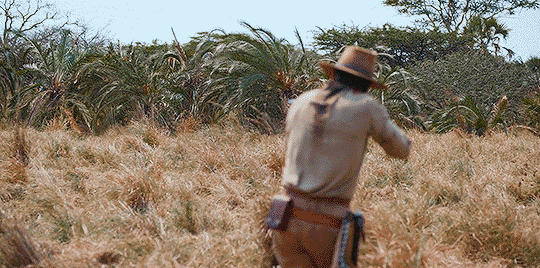

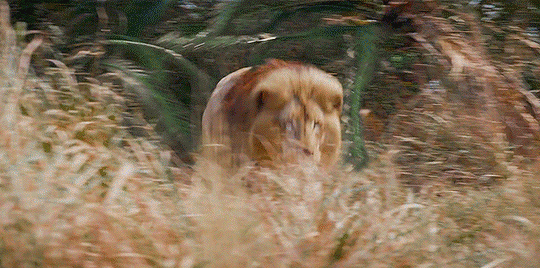

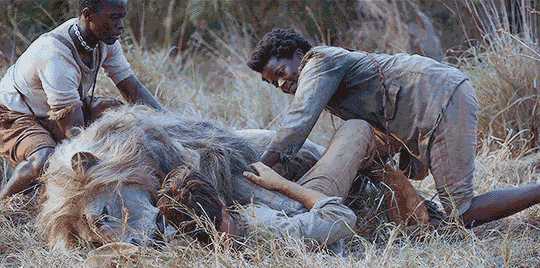
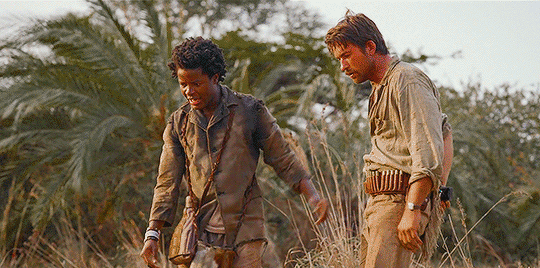
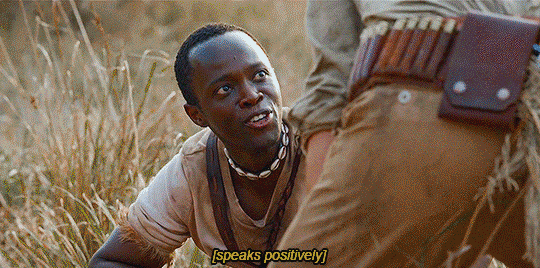
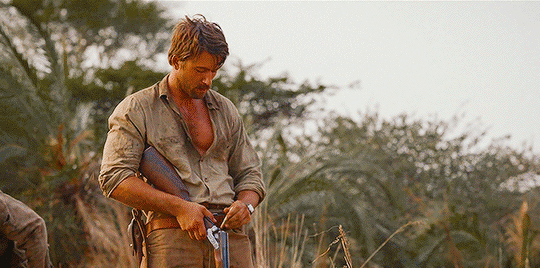

Brandon Sklenar as Spencer Dutton in 1923
#spencer dutton#1923#1923edit#brandon sklenar#edit#these took an embarrassingly long time to make#i'm rusty#also he's hunting maneaters in africa#tw blood#tw gun#tw romanticization of this#out of credits
83 notes
·
View notes
Text
Forget sharks – mosquitoes are the deadliest maneaters on earth
Mosquitoes have altered the course of human history by bringing malaria to populations and even armies — such as halting Genghis Khan’s westward plunder, according to a new book. SPL
If we were rational creatures, we would fear our back yards more than our beaches.
Though oceans contain real-life monsters like the great white, our lawns and parks are home to humankind’s deadliest foe: the ubiquitous mosquito.
“Harvester of human populations,” “the grim reaper,” “the deadliest hunters of human beings on the planet” — these are some of the ways that history professor Timothy C. Winegard describes these flying pests in his new book “Mosquito: A Human History of Our Deadliest Predator” (Dutton), out Tuesday.
The numbers speak for themselves: “The mosquito has killed more people than any other cause of death in human history,” writes Winegard. “Statistical extrapolation situates mosquito-inflicted deaths approaching half of all humans that have ever lived.”
In other words, during our 200,000 years on Earth, the lowly mosquito has murdered an estimated 52 billion of us.
Last year mosquitoes killed 850,000 people — but the annual average hovers around 2 million. Sharks, by contrast, killed 10.

There are 110 trillion mosquitoes stalking the world at this very moment (with only a few places, like Antarctica, the Seychelles and a few French Polynesian islands outside the range of its proboscis). These insects harbor at least 15 lethal diseases. The most deadly are the “toxic twin” of malaria and yellow fever, but mosquitoes also transmit other lethal viruses, like West Nile and Zika, worms and parasites.
Meanwhile, a big enough swarm could leech half the blood from an adult human in just two hours.
Maybe it’s time for the Discovery Channel’s “Shark Week” to rebrand as “Mosquito Week.”
The mosquito emerged 190 million years ago looking disarmingly similar to the way it does today. Like now, it carried its own “weapons of mass destruction” that decimated the dinosaurs. Mosquitoes injected deadly diseases, including malaria and worms (similar to heartworms that dogs get today), into even the most heavily armored beasts.
Entomologists George and Roberta Poinar wrote in “What Bugged the Dinosaurs?” that mosquitoes “were the top predators in the food chain” and they shaped “the destiny of the dinosaurs just as they shape our world today.”
Of course, mosquitoes not only survived after the dinosaur’s extinction — but thrived. Winegard argues that the mosquito exists as a foil to humanity’s progress — haunting us as an unseen player in some of history’s most pivotal moments.
Mosquitoes helped topple Alexander the Great, who likely developed malaria, which killed him before he was able to unite East and West, Winegard writes. “Had this malarious mosquito not sucked the life out of Alexander, all indications point toward an advance into the Far East. Had this occurred, it would have upended the course of history and humankind to the point where modern society would literally be unrecognizable.”
Malaria also played a key role in halting Genghis Khan and his Mongolian army. “The mosquito helped prevent the West from being completely overrun. She harnessed her malarial might and held the reins of Mongol conquest, steering them away from Europe,” he writes.
The pests also played a role in the American Revolution and the Civil War. It tipped the balance in favor of Washington’s army because many of the Brits, unlike the Americans, were not “seasoned” against malaria, meaning they had not developed immunity. Also, mosquito-repelling quinine was sent in greater quantities to British troops in the Caribbean and India than to America, displacing a key advantage for the Redcoats.
And during the Civil War, soldiers were five times more likely to die from malaria than in battle — and many of the hotbed mosquito zones were located in the South.
Even during World War II, German malariologists pressed the Nazi officers to open dikes and refilled marshes with brackish water in Italy to “encourage the proliferation of the deadly mosquito species, Anopheles labranchiae, which thrives in brackish environments,” to act as an “act of biological warfare” against the Allied troops.
“The mosquito sponsored both the rise and fall of ancient empires,” Winegard concludes. “She has prowled the most momentous and pivotal battles . . . outmaneuvered the most celebrated generals and military minds ever mustered to arms, slaying many of these men in the course of her carnage.” Even with various ways to repel mosquitoes today (including DDT, which earned notoriety for its harmful effects on the environment), we still battle. We spend an average $11 billion a year trying to protect ourselves from them — mostly for naught. And they continue to slaughter us.
Though we discovered a successful vaccine for yellow fever in the 1930s, today more than 30,000 people die of the disease a year. The Zika virus, which if contracted during pregnancy can cause serious birth defects like microcephaly, was declared a global emergency by the Centers for Disease Control and Prevention when it hit the Americas in 2016. At the outbreak’s height, there were 5,168 reported cases in the United States (and more than 200,000 cases reported in Brazil). Thanks to various emergency interventions, including travel warnings and mosquito control methods, the CDC says there have been zero reported cases of Zika in the United States since 2018.
But malaria, still “the unsurpassed scourge of humankind” and costs Africa roughly $30 billion to $40 billion in lost commercial output.
The mosquito acts as “a countermeasure against uncontrolled human population growth,” Winegard argues.
And he thinks mosquito-inflicted death will only increase.
“Her reach is growing, expanding both north and south and vertically into higher altitudes as previously untapped regions warm up to her presence,” he writes. “Even in the face of modern science and medicine, she remains the most hazardous animal to humankind.”
Reality bites
Mosquitoes on average kill more humans than any other animal, including man himself. Here, the annual average number of deaths worldwide caused by:
Mosquitoes: 2 million
*Humans: 475,000
*Snakes: 50,000
*Sand flies: 25,000
*Tsetse flies: 10,000
*Crocodiles: 1,000
*Hippos: 500
*Elephants: 100
*Lions: 100
*Sharks: 10
*Wolves: 10
Sucks to be you!
It’s not in your head. Some people are more attractive to mosquitoes than others. We’re all susceptible, but here are a few factors that will get you bitten more often:
Pregnant women suffer twice as many bites because they have a slightly higher body temperature and respire 20 percent more carbon dioxide — one way the mosquito hunts its victims.
People who have excess amounts of lactic acid, uric acid and ammonia also have the bad luck of being more attractive to mosquitoes.
Mosquitoes prefer people with blood type O, who are bitten twice as much as those with type A. Type B falls in between the two.
Stinky feet are a “mosquito aphrodisiac” — so clean up those smelly tootsies if you want to avoid being a mosquito meal.
Unfortunately being too clean is also a risk factor. Mosquitoes love the smell of deodorants, perfumes, soaps and other fragrances.
Finally, studies have also shown that mosquitoes prefer beer drinkers.
The post Forget sharks – mosquitoes are the deadliest maneaters on earth appeared first on HviRAL.
from WordPress https://ift.tt/2yCy5Ow
0 notes
Photo

Charming book about an Africa that doesn't exist anymore This book has all the charm and grace that it should. While he is most indeed a hunter it is written in such way that you can't be angry about it. The writer is very detailed about his adventures and they're a wonderful read. He's smart charming and funny I laughed a few times he also writes about all the different tribes he mets and that alone is worth reading. I highly recommend this book to anyone who likes English books and anyone who wants to learn more about the history of Africa. Go to Amazon
Entertaining, in spite of the larger context of the pillaging of Africa... A well-written, easy read, without the usual stuffy, pretentious overstated prose characteristic of the period in which it was written. Very enjoyable. And the story goes well beyond the Tsavo incident, into the constructing of his bridges and his trophy-hunting. Even the insanity of killing everything in sight---while pillaging Africa---was made tolerable reading by the author. Over all, a revealing glimpse into the mind of a Victorian "English gentleman" hunter---which should give any sane person pause, and thank the gods that the only "proper Englishmen" are now just figureheads. I hope. Go to Amazon
Rousing adventure in Victorian East Africa! Colonel Patterson's first hand account of dealing with the Maneating Lions of Tsavo is riveting reading indeed! Also entertaining is his description of conditions and happenings along the trackway and his interactions with workers and natives alike. While the actual settling of the lions makes for the highlight of the book, Colonel Patterson's handling of the mutiny of the workers and their conspiracy to murder him is capital reading. Colonel Patterson was a very brave man who never flinched from what he saw as his duty and you will be glad to have gotten to know this humble hero after finishing the book. Go to Amazon
Great copy of original book This Man-Eater of Tsavo (Peter Capstick edition) is a great copy of the original book. This edition contains all the pictures and maps included in the original copy. Some are probably not as clear as in the original copy, but they are still good. Go to Amazon
Great book My daughter heard some of the story on Mystery at the Museum on the Travel channel. She wanted to know more about it. So I found the book and movie on Amazon. I gave them to her for Christmas and she was very happy Go to Amazon
Interesting historically Reads very bluntly like a journal. Of interest for it's obvious historical content and as context for the movie based on the first part of the book. The failure to include the referenced photos was disappointing. Go to Amazon
Fascinating Stories! If you love stories of adventure, survival, animal attacks, etc, then you will LOVE this book. It is written very well...it reads very smoothly and holds your attention the whole time. I finished this book in about a week. This man's time in East Africa was really fascinating. I do wish I had gotten a version with the pictures...this one only has one picture on the cover and I think that is why it is so cheap. Go to Amazon
If you like sitting on the edge of your seat Incredible account of dangers, hardships, courage and the pursuit of survival in Victorian Africa. This is a account of lions who seem to be almost supernatural and always one step ahead of man. If you like sitting on the edge of your seat, this is a read for you. It's a story you will always remember. Go to Amazon
Well, written, terrifying and sometimes funny. ... the book which dealt with "The Man-Eaters" was very good. The middle was a bit drawn out but ... I have spent a great deal of time in Kenya and this book captures ... Compelling story, a great read, and the original basis for the movie "Ghose and the Darkness". Excellent, excellent, excellent!!! Five Stars you either like it or don't Five Stars Man, Patterson Loved to Kill Things Great read
0 notes
Photo

Charming book about an Africa that doesn't exist anymore This book has all the charm and grace that it should. While he is most indeed a hunter it is written in such way that you can't be angry about it. The writer is very detailed about his adventures and they're a wonderful read. He's smart charming and funny I laughed a few times he also writes about all the different tribes he mets and that alone is worth reading. I highly recommend this book to anyone who likes English books and anyone who wants to learn more about the history of Africa. Go to Amazon
Entertaining, in spite of the larger context of the pillaging of Africa... A well-written, easy read, without the usual stuffy, pretentious overstated prose characteristic of the period in which it was written. Very enjoyable. And the story goes well beyond the Tsavo incident, into the constructing of his bridges and his trophy-hunting. Even the insanity of killing everything in sight---while pillaging Africa---was made tolerable reading by the author. Over all, a revealing glimpse into the mind of a Victorian "English gentleman" hunter---which should give any sane person pause, and thank the gods that the only "proper Englishmen" are now just figureheads. I hope. Go to Amazon
Rousing adventure in Victorian East Africa! Colonel Patterson's first hand account of dealing with the Maneating Lions of Tsavo is riveting reading indeed! Also entertaining is his description of conditions and happenings along the trackway and his interactions with workers and natives alike. While the actual settling of the lions makes for the highlight of the book, Colonel Patterson's handling of the mutiny of the workers and their conspiracy to murder him is capital reading. Colonel Patterson was a very brave man who never flinched from what he saw as his duty and you will be glad to have gotten to know this humble hero after finishing the book. Go to Amazon
Great copy of original book This Man-Eater of Tsavo (Peter Capstick edition) is a great copy of the original book. This edition contains all the pictures and maps included in the original copy. Some are probably not as clear as in the original copy, but they are still good. Go to Amazon
Great book My daughter heard some of the story on Mystery at the Museum on the Travel channel. She wanted to know more about it. So I found the book and movie on Amazon. I gave them to her for Christmas and she was very happy Go to Amazon
Interesting historically Reads very bluntly like a journal. Of interest for it's obvious historical content and as context for the movie based on the first part of the book. The failure to include the referenced photos was disappointing. Go to Amazon
Fascinating Stories! If you love stories of adventure, survival, animal attacks, etc, then you will LOVE this book. It is written very well...it reads very smoothly and holds your attention the whole time. I finished this book in about a week. This man's time in East Africa was really fascinating. I do wish I had gotten a version with the pictures...this one only has one picture on the cover and I think that is why it is so cheap. Go to Amazon
If you like sitting on the edge of your seat Incredible account of dangers, hardships, courage and the pursuit of survival in Victorian Africa. This is a account of lions who seem to be almost supernatural and always one step ahead of man. If you like sitting on the edge of your seat, this is a read for you. It's a story you will always remember. Go to Amazon
Well, written, terrifying and sometimes funny. ... the book which dealt with "The Man-Eaters" was very good. The middle was a bit drawn out but ... I have spent a great deal of time in Kenya and this book captures ... Compelling story, a great read, and the original basis for the movie "Ghose and the Darkness". Five Stars you either like it or don't Five Stars Man, Patterson Loved to Kill Things Great read The man eaters of Tsavo
0 notes
Photo

Charming book about an Africa that doesn't exist anymore This book has all the charm and grace that it should. While he is most indeed a hunter it is written in such way that you can't be angry about it. The writer is very detailed about his adventures and they're a wonderful read. He's smart charming and funny I laughed a few times he also writes about all the different tribes he mets and that alone is worth reading. I highly recommend this book to anyone who likes English books and anyone who wants to learn more about the history of Africa. Go to Amazon
Entertaining, in spite of the larger context of the pillaging of Africa... A well-written, easy read, without the usual stuffy, pretentious overstated prose characteristic of the period in which it was written. Very enjoyable. And the story goes well beyond the Tsavo incident, into the constructing of his bridges and his trophy-hunting. Even the insanity of killing everything in sight---while pillaging Africa---was made tolerable reading by the author. Over all, a revealing glimpse into the mind of a Victorian "English gentleman" hunter---which should give any sane person pause, and thank the gods that the only "proper Englishmen" are now just figureheads. I hope. Go to Amazon
Compelling story, a great read, and the original basis for the movie "Ghose and the Darkness". After watching the movie "Ghost and the Darkness" I wanted to read the original story that was the basis for the movie. At first I bought the paperback book of the same title as the movie, however that was essentially a carbon copy of the movie. In the back of the book was a reference to the original story, "The Man-Eaters Of Tsavo". I ordered it and what a great story! The original story is even more compelling than the movie. I liked it so much I bought a second copy for a friend that is an avid hunter and sportsman in his own right. Go to Amazon
Rousing adventure in Victorian East Africa! Colonel Patterson's first hand account of dealing with the Maneating Lions of Tsavo is riveting reading indeed! Also entertaining is his description of conditions and happenings along the trackway and his interactions with workers and natives alike. While the actual settling of the lions makes for the highlight of the book, Colonel Patterson's handling of the mutiny of the workers and their conspiracy to murder him is capital reading. Colonel Patterson was a very brave man who never flinched from what he saw as his duty and you will be glad to have gotten to know this humble hero after finishing the book. Go to Amazon
Great copy of original book This Man-Eater of Tsavo (Peter Capstick edition) is a great copy of the original book. This edition contains all the pictures and maps included in the original copy. Some are probably not as clear as in the original copy, but they are still good. Go to Amazon
Great book My daughter heard some of the story on Mystery at the Museum on the Travel channel. She wanted to know more about it. So I found the book and movie on Amazon. I gave them to her for Christmas and she was very happy Go to Amazon
Interesting historically Reads very bluntly like a journal. Of interest for it's obvious historical content and as context for the movie based on the first part of the book. The failure to include the referenced photos was disappointing. Go to Amazon
Fascinating Stories! If you love stories of adventure, survival, animal attacks, etc, then you will LOVE this book. It is written very well...it reads very smoothly and holds your attention the whole time. I finished this book in about a week. This man's time in East Africa was really fascinating. I do wish I had gotten a version with the pictures...this one only has one picture on the cover and I think that is why it is so cheap. Go to Amazon
... the book which dealt with "The Man-Eaters" was very good. The middle was a bit drawn out but ... I have spent a great deal of time in Kenya and this book captures ... Five Stars you either like it or don't Five Stars Man, Patterson Loved to Kill Things Great read The man eaters of Tsavo Page turner
0 notes